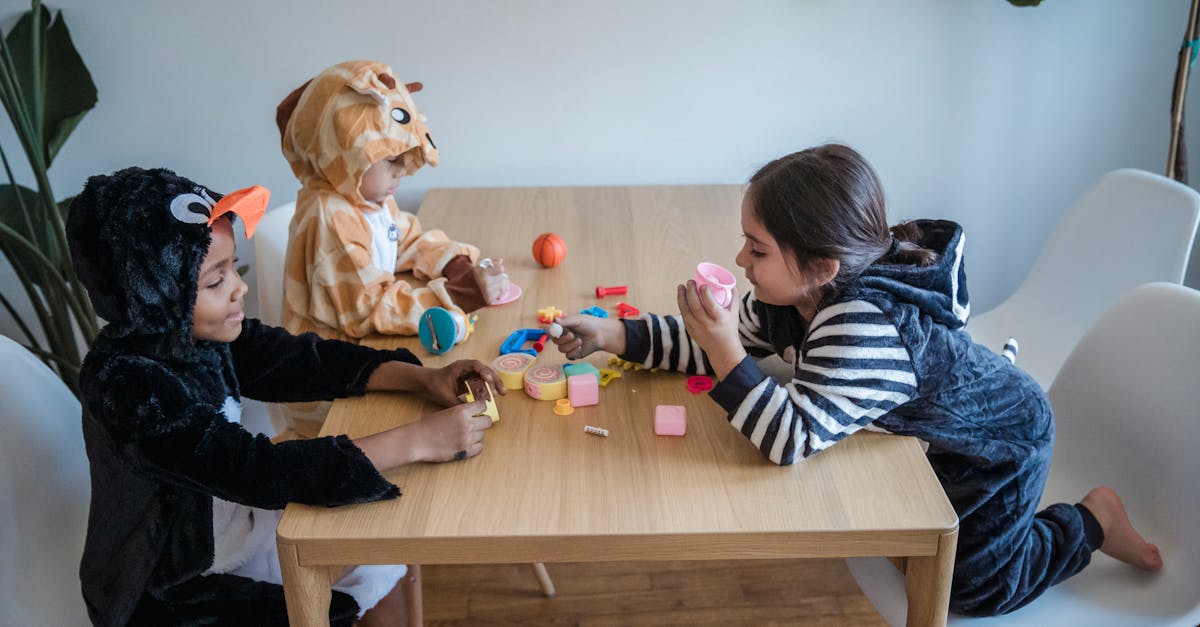Understanding Your Role as a Guide
In the journey of raising a pre-schooler, parents unwittingly become tour guides, leading their little explorers through the world and beyond. Like any adventurous road trip, the task demands awareness of the terrain, especially important in a secular world.
Your active faith can provide stability and confidence, even when outside influences are less than aligned. It’s much like teaching them not to chase squirrels in the park – tricky, but vital.
Establish a strong bond by sharing simple stories of faith, like bedtime tales with a moral twist. Remember, these tiny adventurers idolize you, so your values set a foundational path.
Since you’re the captain of this ship, ensure that your compass points toward:
- Compassion
- Understanding
- Patience

Creating a Faithful Home Environment
Your home isn’t just a building; it’s a launch pad where religious rituals take flight. Think of it as Hogwarts for budding wizards of faith.
Create a space that radiates belief by incorporating child-friendly religious artifacts or symbols. Plan simple activities like:
- A gratitude jar
- A ‘mini Sunday service’ at home with songs and stories
Engage them in conversations about their day through a faith-based lens. This doesn’t mean sermon hour; just slight nudges towards curiosity and kindness.
Our little heroes need a nurturing ground where faith isn’t a chore, but an opportunity to explore how faith interacts with everyday stuff – like stumping your toe and finding grace instead of just a blood-curdling scream.

Balancing Faith and Playtime
Faith shouldn’t be a stiff, suit-and-tie affair that kids dread. It should feel more like pajama day – fun, comfortable, and exciting.
Mingle their playtime with faith-based fun activities. Think Noah’s ark but in your backyard with a bunch of stuffed animals. Remember, the sandbox isn’t hostile territory but an extension of your family’s values.
Finding Balance
Find balance by setting clear, gentle distinctions between play and faith. Much like how they know bath time from playtime, even though both involve splish-splashing.
Transforming Secular Moments
Transform the secular moments into small acts of kindness, empathy, and sharing, so faith evolves naturally during play. It’s all about building a bridge between what they love and what they learn, creating steady ground for both.

Addressing Emotional Challenges
Amidst teaching faith, you’re likely to trip across the emotional minefield. Be ready for questions, frustrations, and maybe a tantrum or two. Your preschooler might innocently ask why their friend doesn’t pray, or why faith matters. These are not end-of-the-road signs, but detours on your pilgrimage.
Everyone on this ride needs an emotional pit stop – even you. Practicing patience and openness, regardless of how wacky the questions might sound, is key. Humor helps too. Sharing an anecdote about your own ‘why’ or ‘how’ mishaps might lighten things up.
Consider engaging them in creative expression, perhaps drawing how they feel about these faith journeys. Let them know bumping into emotional potholes is just part of what makes this trip memorable.

Encouraging Open Conversations
Think of open conversations like a cafeteria menu at school – varied and full of choices. Let your preschooler ‘order’ questions and mix their own beliefs. These talks don’t need to be formal interviews. They can happen anywhere, from the breakfast table to the playground slide.
Let them share their thoughts even if they’re akin to scrambled eggs – mixed but deliciously enlightening. Encourage your child to wonder out loud, sharing their view of the world, and listen without judgment.
Engage in dialogue where they could potentially enlighten you with their surprisingly profound pint-sized wisdom. Recognizing and valuing their voice teaches them that faith isn’t about rigid answers but seeking growth and understanding.
It’s all about striking a balance between guiding their thoughts and appreciating how they see the world.

